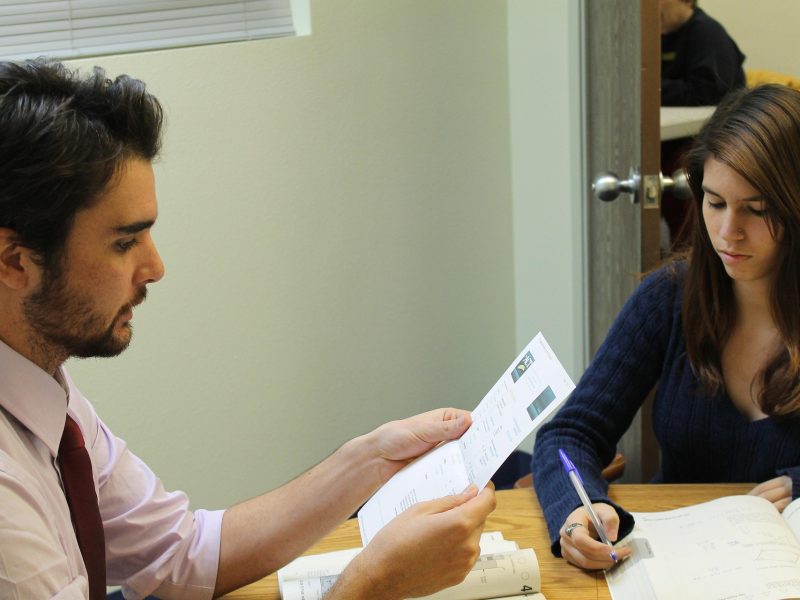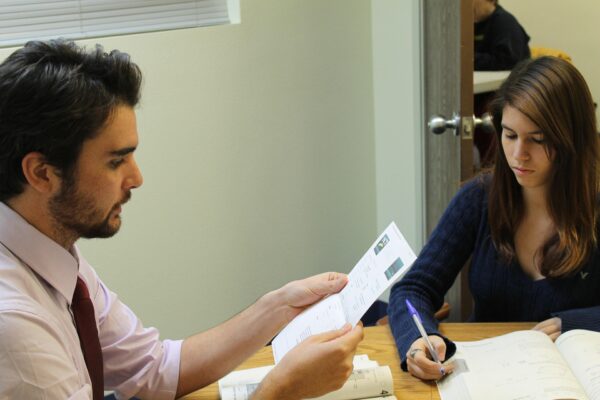Education is fundamentally about relationships. While curriculum and facilities are important, the connection between a student and their teacher can be transformative, shaping not just academic understanding but also personal growth and future aspirations. In the unique, immersive environment of a boarding school, these faculty-student relationships often transcend the traditional classroom dynamic, evolving into powerful forms of mentorship.
Living and learning together 24/7 creates opportunities for interaction and connection that are rare in other school settings. Faculty members wear multiple hats – teacher, coach, advisor, dorm parent – becoming integral figures in students’ lives. For parents entrusting their children to a residential school, understanding the nature and importance of these mentorship opportunities is crucial. For teachers drawn to the boarding school model, the potential to build these deeper connections is often a primary motivation. Why is mentorship so central to the boarding school experience, and how do these unique relationships contribute to student success and well-being? This post explores the vital role of faculty mentorship in boarding schools, examining its various forms and profound impact.
The Boarding School Advantage: Proximity and Accessibility
The cornerstone of strong faculty-student relationships in boarding schools is proximity. Unlike day schools where interactions are largely confined to school hours, boarding school faculty are often deeply integrated into the campus community. Many live on campus, sometimes even in the dormitories alongside students. This constant presence makes teachers exceptionally accessible – not just during office hours, but also in the dining hall, on the sidelines of a game, during evening study hall, or simply walking across the quad.
This accessibility fosters informal interactions and allows relationships to develop organically beyond the structured classroom setting. Students feel more comfortable approaching teachers for help with homework, advice on personal matters, or simply to chat about shared interests. As highlighted by schools like McCallie, this easy access breaks down traditional barriers, allowing faculty to gain a more holistic understanding of their students – their strengths, challenges, personalities, and aspirations. This deep knowledge, built through consistent interaction in various contexts, is the foundation upon which effective mentorship is built.
Multiple Hats, Multiple Mentorship Opportunities
Boarding school faculty members often serve in multiple capacities, creating diverse avenues for mentorship:
- The Teacher as Mentor: In the classroom, particularly with small class sizes (see The Impact of Small Class Sizes), teachers can move beyond simply delivering content to become academic mentors. They can guide students through challenging material, foster intellectual curiosity, encourage critical thinking, and help students discover and develop their academic passions. They provide personalized feedback and support, helping students build confidence and achieve their potential.
- The Advisor as Mentor: Most boarding schools have a formal advisory system where each student is assigned a faculty advisor. This advisor typically serves as the primary point person for the student and their family, overseeing academic progress, helping with course selection, providing guidance on personal matters, and acting as an advocate. The advisor-advisee relationship is often a cornerstone of the school’s support system, providing consistent, personalized mentorship throughout the student’s time at the school.
- The Coach as Mentor: On the playing field, court, or stage, coaches and arts instructors act as powerful mentors. They teach not only technical skills but also discipline, teamwork, resilience, sportsmanship, and leadership. The intense, collaborative nature of extracurricular activities often forges strong bonds between students and their coaches/directors, providing mentorship focused on character development and achieving shared goals.
- The Dorm Parent as Mentor: For faculty living in the dorms, the role of dorm parent offers unique mentorship opportunities focused on residential life and personal development. They help students navigate roommate dynamics, manage homesickness, develop independent living skills (time management, organization), and provide guidance on social and emotional issues. They create a supportive “home away from home” environment.
This multifaceted involvement allows faculty to connect with students on different levels, offering tailored guidance and support across various aspects of their lives.
Fostering Academic Growth and Intellectual Curiosity
Faculty mentorship plays a crucial role in nurturing students’ academic development. Accessible teachers can provide timely help when students are struggling with concepts, preventing small difficulties from becoming major roadblocks. They can also challenge high-achieving students, suggesting advanced readings, guiding independent research projects, or connecting them with specialized opportunities.
More importantly, passionate teachers who build strong relationships with their students can ignite intellectual curiosity. By sharing their own enthusiasm for their subject, encouraging exploration beyond the curriculum, and validating students’ ideas, mentors inspire a genuine love of learning. They help students connect academic subjects to real-world applications and future possibilities, making learning more relevant and engaging. This intellectual mentorship is key to preparing students not just for college admissions, but for a lifetime of learning and inquiry.
Supporting Personal Development and Well-being
Adolescence is a time of significant personal growth and challenge. Living away from home adds another layer of complexity. Boarding school mentors provide essential support for students’ social and emotional well-being. Advisors, dorm parents, and trusted teachers offer a listening ear, guidance, and perspective as students navigate friendships, manage stress, make decisions, and develop their identity.
As noted by institutions like Doon International School, mentors help students build resilience by encouraging them to face challenges, learn from mistakes, and develop coping strategies. They model positive behavior, ethical decision-making, and healthy habits. In a residential setting, faculty are often the first line of support when a student is feeling overwhelmed, homesick, or facing personal difficulties. This consistent presence of caring adults provides a crucial safety net, promoting student well-being (read about Balancing Academics and Well-being) and helping them develop the emotional intelligence and maturity needed to thrive.
Guiding Future Pathways: College and Beyond
Faculty mentors are invaluable resources as students begin to think about their future beyond boarding school. Teachers, advisors, and coaches share their own educational and professional experiences, offer insights into different fields, and help students explore potential college majors and career paths.
College counselors work closely with advisors and teachers to provide comprehensive guidance throughout the college application process. Mentors write detailed, personalized recommendation letters based on their deep knowledge of the student. Coaches advocate for student-athletes during the recruitment process. Advisors help students reflect on their goals and identify colleges that are a good fit academically, socially, and personally. This network of mentors provides multifaceted support, helping students navigate the transition to higher education with confidence and clarity.
The Reciprocal Nature of Mentorship
While the focus is often on the benefits for students, the mentorship role is also deeply rewarding for faculty. Building meaningful connections with young people, witnessing their growth, and playing a part in shaping their futures is a primary reason many educators choose the demanding lifestyle of a boarding school. This sense of purpose and connection contributes to faculty retention and a vibrant, committed school community.
Students, in turn, often inspire their mentors through their energy, curiosity, and unique perspectives. The relationships are often reciprocal, fostering mutual respect and learning. This positive dynamic permeates the school culture, creating an environment where both students and adults feel valued and engaged.
Conclusion: The Heartbeat of the Boarding School Community
Strong faculty-student relationships and robust mentorship are not just desirable features of a boarding school; they are the very heartbeat of its community and educational philosophy. The unique structure of residential life, combined with a dedicated faculty serving in multiple roles, creates an environment where deep, meaningful connections can flourish. These relationships provide students with essential academic support, guidance for personal growth, crucial emotional well-being resources, and invaluable preparation for college and life beyond.
For parents, the promise of dedicated mentors who truly know and care for their child offers significant peace of mind. For teachers, the opportunity to engage in this holistic form of education is profoundly fulfilling. The importance of mentorship in boarding schools cannot be overstated – it is a key element that transforms the educational experience, shaping students into confident, capable, and well-supported individuals ready to make their mark on the world.













